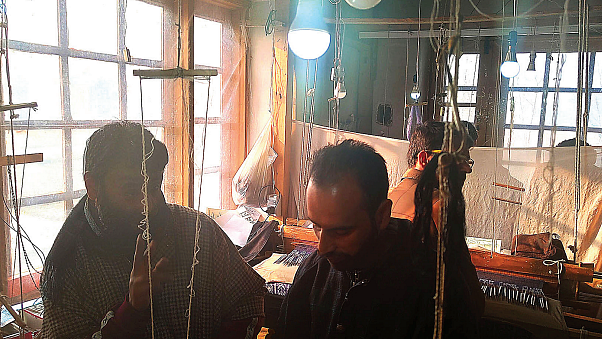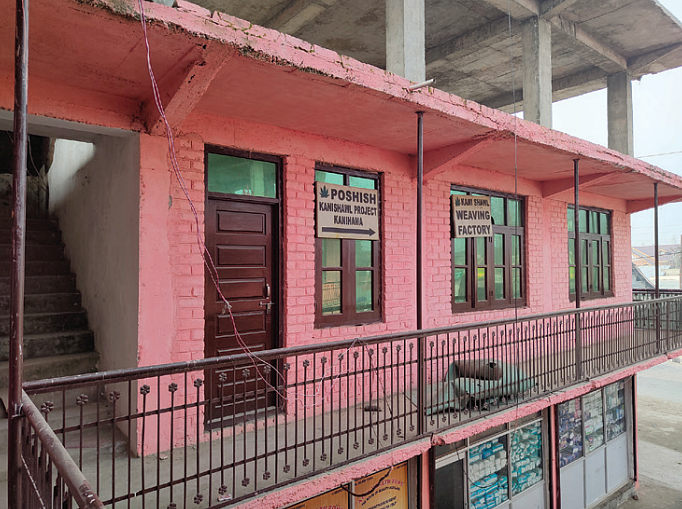Kashmiri weavers of Pashmina ‘Kani’ shawls left in the lurch
Exports have been falling and weavers are looking for other work to survive. A 10-hour workday earns an artisan just Rs. 250

The Prime Minister’s fondness for expensive Pashmina shawls is well known. Politicians and businessmen alike, say trade sources in Srinagar, have been commissioning shawls for Mr. Modi for the past several years. Every year in winter the exquisite shawls are seen draped round his shoulder, different shawls every week if not every day.
It, therefore, came as no surprise when a Pashmina shawl was found slung casually over one of his shoulders when the Prime Minister addressed the nation on November 20 and announced the repeal of the farm laws. The shawl, media reports suggested, cost Rs 1.25 lakhs and had taken six months to weave.
However, sales have been declining, say official sources. J&K government’s Department of Handicrafts concede that export of shawls from J&K has fallen steeply in the last three years--from Rs. 305.90 crore in 2018-19 to Rs. 271.62 crore in 2019-20 and only Rs. 172.53 crore in 2020-21.
The Handloom Development Corporation’s Kani Shawl Weaving Factory at Kanihami is also shut for the last 18 months. Bashir Ahmad Wani (60), who has been weaving shawls for the last 45-years, says, “We would make Rs 300 to Rs 400 per day. But this factory is shut for the last 18 months. We do not know why.” His four children have also abandoned the old craft and switched to other works.
Kani shawls are indigenous to Kanihama, a Kashmiri village, and the craft is traced back to 3000 BC. The word ‘Kani in Kashmiri means a small wooden oblong spool. It takes between six and 18 months to weave a shawl, depending on the intricacy and complexity of the design. The weavers say they earn Rs 30,000 or so from middleman or brokers after working for six months. They however fetch a lot more in markets. The ingredients used are high grade Pashmina wool from Ladakh. Each shawl costs not less than Rs. 10,000 and can go upto Rs. 3 lakh.

Abdul Rashid (42), a resident of Kanihami in Budgam district, regrets opting for the ancestral trade of weaving shawls though.
“Even after weaving Kani shawls for the last 30-years, I earn Rs. 250 after working 10 hours a day. The government is making tall claims but we see nothing on the ground. We (artisans) owe money to banks and are not able to return.” Kanihama houses around 1200 families and over 90 percent people were once associated with this profession. The village is internationally known for its pashmina shawls. However, the majority have shifted to other work.
“The situation has been grim for the last several years. Two years ago, I bought a load carrier and am earning Rs. 700 per day,” confided one of them. The amount is three times higher than what he earned by weaving shawls.
Lt. Governor Manoj Sinha however said recently that the government’s primary focus is to scale up local handloom and handicrafts to global level.
(This article was first published in National Herald on Sunday)
Follow us on: Facebook, Twitter, Google News, Instagram
Join our official telegram channel (@nationalherald) and stay updated with the latest headlines